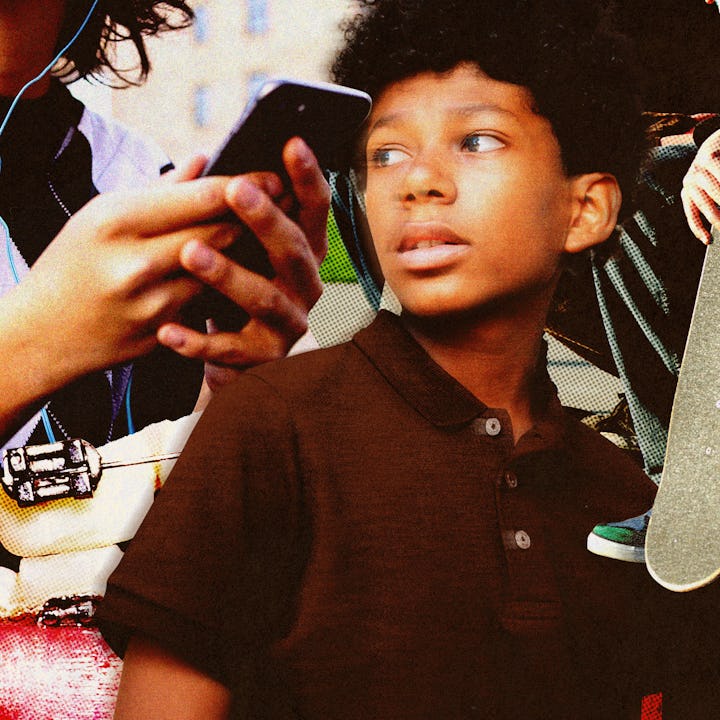Parenting Tweens Is An Emotional Roller-Coaster
It’s been harder than toddler tantrums or anything I have experienced before.

I distinctly remember being out in public wrangling three kids under four while people looked at me with pitying glances and offered encouragement like, “I promise, it will get easier.” Well, they lied, because it has not gotten easier. In fact, in many ways, it’s only gotten harder. For me, the emotional roller coaster of parenting a tween is much harder than toddler tantrums or sleepless nights.
As my oldest becomes a “tween,” I’m enduring a grieving process of saying goodbye to that small child and trying to embrace this new, older, and bigger version of my baby. But it’s not easy. This stage of preadolescence should come with a flashing neon warning sign: rough terrain ahead, tread lightly! The shift from being a little kid to prepubescent feels seismic. The tender innocence of early childhood has worn off, and suddenly, these kids look (and act!) all grown up. Gone are the sweet little baby faces and precious mispronunciation of words like pasketti, and in their place are eye-rolling kids with some big feelings trying to find their place in the world. That’s hard work for them — and for me, too.
The world our kids are coming of age in looks utterly different from the world I came of age in, and I’m convinced it makes the transition even harder. As a tween, I was still very much a child and even still played make-believe games. Now thanks to the likes of TikTok and YouTube, these kids act and talk way more like teenagers than young children. My technology-free middle school experience was bad enough, but now this new generation must contend with social cruelties in person and online.
My son’s friendship dynamics have drastically changed. It used to feel like all the kids played together and there were no real cliques. But as the kids have become tweens they’ve begun to build connections and camaraderie with peers based on compatibility and mutual interests, like sports, and they’ve segregated themselves off into groups. And at some point, they will assuredly encounter mean girls (and boys). Or, even more worrisome, they will be one themselves.
I was entirely unprepared for the secondhand heartbreak I’ve experienced through these changing friendships. It almost feels more painful than if it was happening directly to me, mainly because it’s out of my control. My child recently got left out by some friends and I felt like I had been punched in the face; my urge to intervene was powerful. I realized I’m too emotionally invested and need to take a step back. It’s hard because I want to help him, but there’s a fine line between guiding and meddling. I’m learning that sometimes it’s best to let them work it out. Or not. Sometimes friendships end or change, which is a painful lesson I’m still learning in my forties.
Many of these kids are already or soon to be in the throes of puberty, so their bodies are changing, and hormones are starting to kick in. They’re feeling self-conscious, embarrassed, and confused. They’re also starting to have budding romances, which come with a whole onslaught of new emotions.
While I do my best to walk my son through this new phase of life, I’m feeling deeply unsettled in my new role of relinquishing some control while granting some freedom and independence. Even though every day seems to bring a new challenge, I’m trying to embrace the chaos and find the humor in it all. At this point, I’ve learned to expect the unexpected and know that this too shall pass… just in time for my next kid to start his tween years. I think I’ll take that nap now.
Christina Crawford is a Dallas-based writer, guacamole enthusiast, and mom to three feral little boys. She spends her days putting out fires (actual and metaphorical) and trying to keep goldfish alive. Her words have appeared in Newsweek, HuffPost, Health Magazine, Parents, Scary Mommy, Today Show Parents, and more. You can follow along on Twitter where she writes (questionably) funny anecdotes about her life at @Xtina_Crawford